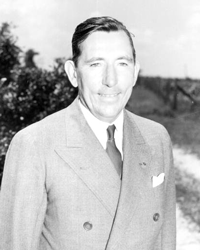Mission
The mission of the Claude D. Pepper Older Americans Independence Center (OAIC) is to establish centers of excellence in geriatrics research and research education to increase scientific knowledge to better ways to maintain or restore independence in older persons.
2025-2030 Theme
Enhance functional independence in older adults with chronic disabling conditions by reducing health disparities

The UTMB Health Pepper Center is dedicated to advancing multidisciplinary research and training the next generation of leaders in gerontology and geriatrics.
2025-2023 (6th Cycle) Key Aims
- Test interactions among biobehavioral, health system, and social factors in age-related trajectories of disability and functional independence
- Develop and evaluate interventions to maintain or restore functional independence in chronic disabling conditions
- Translate interventions to the real world and clinical settings in different populations
- Recruit, mentor, and develop early career faculty members
Our Primary Goal
Functional independence involves an individual's ability to manage personal needs and daily activities within their environment. Chronic disabling conditions are long-term health issues that significantly impair daily activities. Aging with such conditions can diminish independence across physical, cognitive, and psychobehavioral domains. This is especially the case in older adults facing additional challenges from adverse social determinants of health. To understand and address the complex interplay between functional independence, chronic disabling conditions, and the impact of adverse social determinants of health, we must employ an intersectional approach that understands the interdependence of these factors. Thus, our primary goal is to improve functional independence in older people with chronic disabling conditions by addressing how sex, education, income and social and environmental factors affect their health.
Core Infrastructure
In this cycle we will integrate three Resource Cores: Research Design & Data Management, Clinical & Community Research, and a new Technology-Enabled Research Core to drive innovation and training. The Research Education Core will lead scholar development, while the Pilot/Exploratory Core will support new projects. The Leadership Administrative Core will oversee all efforts and connect us with institutional and national networks.
Contact Us
The UTMB Health Claude D. Pepper Older Americans Independence Center (OAIC)
301 University Blvd.
Galveston, TX 77555-0177
Directions and Maps
Phone: (409) 747-0008
Email: aging.research@utmb.edu









